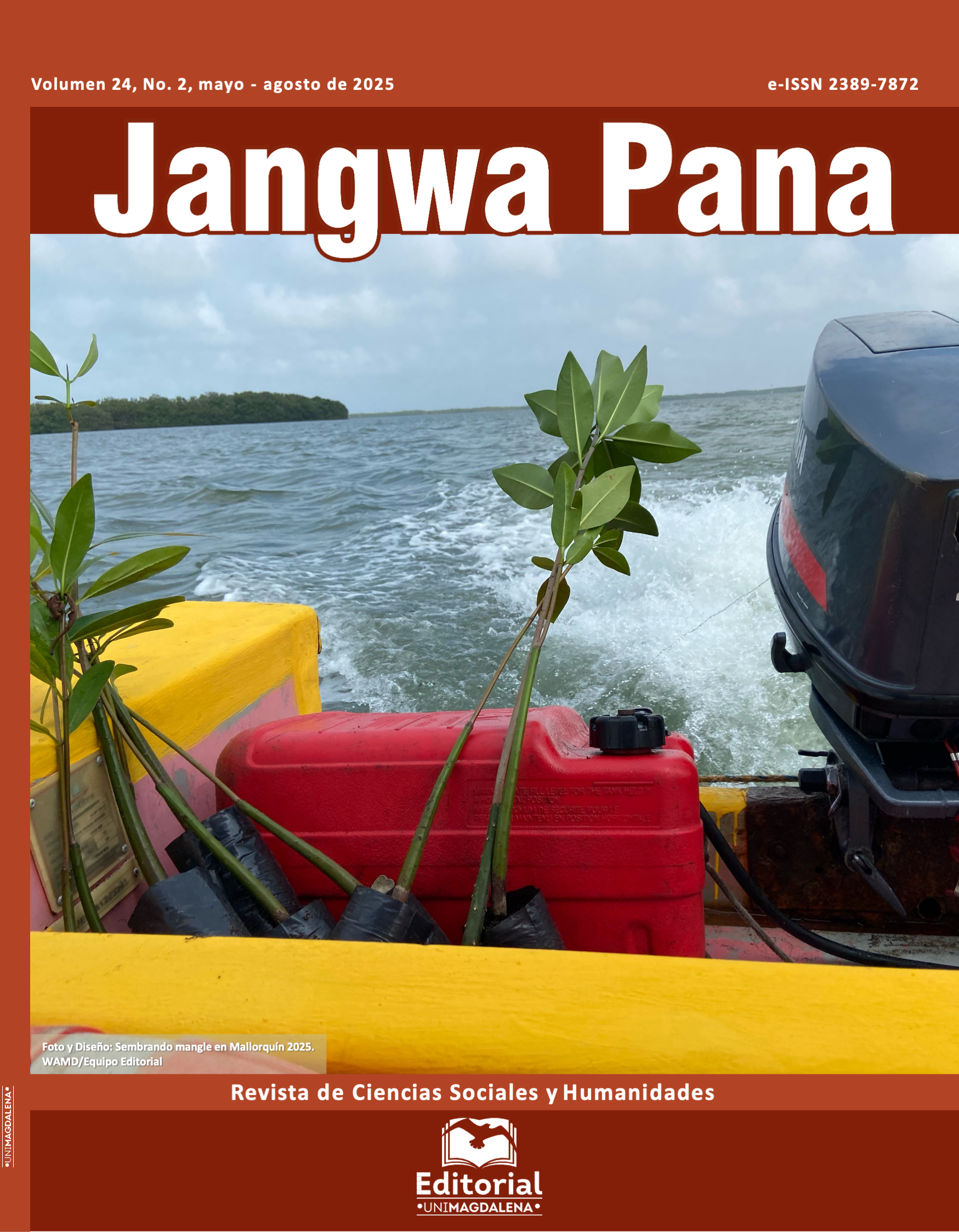Apuntes antropológicos sobre el proceso de construcción de conocimiento en un proyecto editorial de la ciudad de Rosario (Argentina)
Contenido principal del artículo
Resumen
Descargas
Detalles del artículo
Citas
Achilli, E. (2005). Investigar en antropología social: Los desafíos de transmitir un oficio. Laborde.
Bourdieu, P., & Wacquant, L. (1995). Respuestas. Por una antropología reflexiva. Grijalbo.
Bourgois, P. (2015). En busca de respeto. Vendiendo crack en Harlem. Siglo XXI.
Da Matta, R. (2007). El oficio del etnólogo o cómo tener Anthropological Blues. In M. Boivin, V. Arribas, & A. Rosato (Eds.), Constructores de otredad. Una introducción a la antropología social y cultural (pp. 172-178). Antropofagia.
de Souza, M. C. (2009). La artesanía de la investigación cualitativa. Lugar Editorial.
Fasano, P. (2015). La investigación en comunicación comunitaria y popular: el uso de la etnografía como enfoque. Avatares de la Comunicación y la Cultura(10), 47-61. Obtenido de https://publicaciones.sociales.uba.ar/index.php/avatares/article/view/4845
Fasano, P. (2019). Tras la vitalidad de lo social. El uso de la etnografía en los procesos de extensión universitaria, una estrategia para la integralidad de funciones. Revista de Extensión Universitaria +E(10), 3-16. doi:https://doi.org/10.14409/extension.v9i10.Ene-Jun.8286
Fernández, M. (2010). Desafíos de la investigación etnográfica sobre procesos políticos «calientes». (Con)textos: Revista d’antropologia I Investigació Social(4), 80-89. Obtenido de https://revistes.ub.edu/index.php/contextos/article/view/2169
Geertz, C. (2006). La interpretación de las culturas. Gedisa.
Guber, R. (2004). El salvaje metropolitano. Editorial Legasa.
Hermitte, E. (2018). La observación por medio de la participación. In R. Guber (Ed.), Trabajo de campo en América Latina. Experiencias antropológicas regionales en etnografía (pp. 89-108). Editorial SB.
Krotz, E. (2018). El caminar antropológico: ensayo sobre el trabajo de campo y su enseñanza. In R. Gube (Ed.), Trabajo de campo en América Latina. Experiencias antropológicas regionales en etnografía (pp. 131-142). Editorial SB.
Lins-Ribeiro, G. (2007). Descotidianizar. Extrañamiento y conciencia práctica. Un ensayo sobre la perspectiva antropológica. In M. Boivin, V. Arribas, & A. Rosato (Eds.), Constructores de otredad. Una introducción a la antropología social y cultural (pp. 255-259). Antropofagia.
Martín, J. (2004). Oficio de cartógrafo. Travesías latinoamericanas de la comunicación en la cultura. Fondo de Cultura Económica.
Palerm, A. (2018). Teoría antropológica y trabajo de campo en la formación de antropólogos sociales y etnólogos en América Latina. In R. Guber (Ed.), Trabajo de campo en América Latina. Experiencias antropológicas regionales en etnografía (pp. 81-87). Editorial SB.
Rockwell, E. (2011). La experiencia etnográfica: historia y cultura en los procesos educativos. Paidós.
Stagnaro, A. (2006). De antropóloga externa a antropóloga local: Diferentes modos de implicación. Cuadernos de antropología Social(23), 81-103. Obtenido de http://revistascientificas.filo.uba.ar/index.php/CAS/article/view/4421
Telleria, M. C. (2021). La implicancia subjetiva y la reflexividad en la construcción de conocimiento antropológico. Raíces: Revista De Ciencias Sociales Y Políticas, 5(9), 109–117. doi:https://doi.org/10.5377/raices.v5i9.11982
Vessuri, H. (2018). La observación participante en Tucumán 1972. In R. Guber (Ed.), Trabajo de campo en América Latina. Experiencias antropológicas regionales en etnografía (pp. 231-250). Editorial SB.
Wacquant, L. (2006). Entre las cuerdas. Cuadernos de un aprendiz de boxeador. Siglo XXI.
Willis, P. (1985). Notas sobre el método. Cuadernos de Formación(2), 88-95. Obtenido de https://es.scribd.com/document/270082893/WILLIS-Notas-Sobre-Metodo

